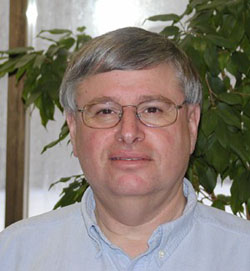| Winter 2004 |
||
|
|
||
Candidates for Board Positions: President-Elect Compiled by Ruth Beattie |
||
President Elect (1-year term)The President Elect shall, in the absence or incapacity of the President, perform all of the duties of the President. Shall serve as member of the Nomination Committee. [Position elected in alternate years; begins term July 1 in 2002, 2004, etc.]. (FYI – President’s Responsibilities: The President is the chief executive officer of the Corporation and will, subject to the control of the Board of Directors, supervise and control the affairs of the Corporation. The President will perform all duties incident to the office and other duties that may be required by the by-laws or prescribed by the Board of Directors.)
|
||
Nominee: Dr. William (Bill) Glider 402-472-6242 E-mail: wglider1@unl.edu |
 |
|
Present Academic Position: I am a Senior Lecturer in the Department of Biological Sciences at the University of Nebraska-Lincoln, where I lecture in the large lecture sections of General Biology and serve as the Biology Teaching Lab Coordinator. I periodically teach Introductory Field Botany and Aquatic Botany at the UNL Cedar Point Biological Station in Western Nebraska. In addition, I am in charge of the TA Training Programs for the School of Biological Sciences and the College of Arts and Sciences Math/Science and Computer Science Departments. I have received several awards for outstanding teaching, including the 2001 College of Arts and Sciences Distinguished Teaching Award. Academic Background: I received a B.S. in Biology from Cornell University, an M.S. in Botany from the University of Maine, Orono, and a Ph.D. in Biological Sciences from the University of Nebraska-Lincoln. My research interests are biology education, with emphasis on the use of web based technology as a pedagogical tool, and algal-invertebrate symbiosis. ABLE Service/Activity: I have been a member of ABLE since 1987 and have attended all but three ABLE conferences. It was my hosting of the 1999 ABLE Conference that not only exposed me to the “inner workings” of ABLE but most importantly showed me the willingness of the members to help me with the conference to ensure its success. I was elected to a four-year term as member-at-large in 2000. I was a co-presenter for three workshops dealing with the effective methods of training Biology Laboratory TAs, and I presented a major workshop (Using Bromelain In Pineaple Juice to Investigate Enzyme Function) at the 2001 Chicago conference. Personal Statement: As is the case of many ABLE members, my attendance and participation at the annual ABLE conference is always the high point of my academic year. I not only bring back many ideas and techniques to incorporate into the general biology labs at UNL, but I also come away with a sense of excitement from seeing first hand the tremendous efforts put forth by participants to provide quality biology laboratory education to their students. The ABLE conference provides me with an opportunity to see friends, talk biology, and unwind from what was usually two semesters from hell. It is this informal and nurturing atmosphere that is unique to ABLE and must be preserved as the Association strives for excellence and confronts new challenges. My primary goal as president will be to see to completion the many projects initiated by past presidents and the ABLE membership. In addition, I would like to initiate discussions with the Board and the ABLE membership on several of the following issues:
|
||
|
|
||